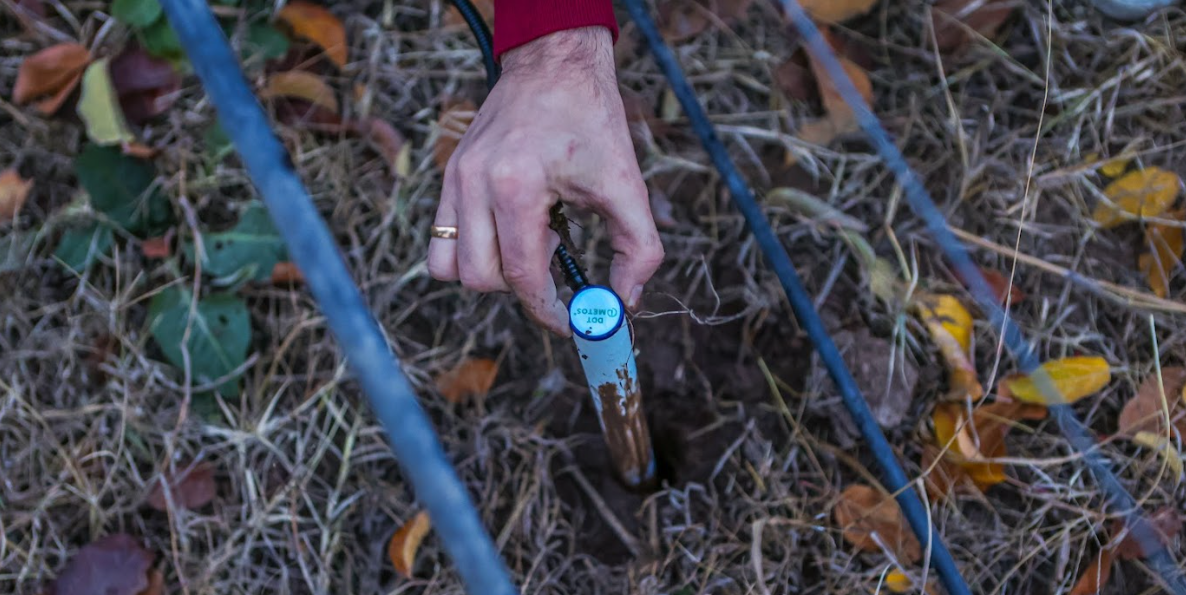FAO and agritech innovators join hands to create digital demo farm

©FAO/Didor Sadulloev
The Food and Agriculture Organization of the United Nations (FAO) recognizes that scaling up science, technology and innovation is necessary for a profound transformation of food and agricultural systems. Engagements with the private sector help energize digital ecosystems and catalyse innovations and integration of digital technologies.
FAO focuses on its role as a broker of strategic engagements to harness new technologies and innovations in the agrifood sector to gain cost-effective, sustainable, and scalable solutions to long-standing development challenges.
In Tajikistan, FAO has recently collaborated with the private and education sectors to accelerate digitalization through the establishment of a digital demonstration farm.
In a remarkable partnership driven by a common belief in the benefits of digital agriculture, FAO joined hands with agritech innovators to set up a digital demo farm within the site of the educational farm of the Tajik Agrarian University located in the Hisor city of Tajikistan. In this initiative, FAO acted as a matchmaker, facilitating collaboration between private sector companies and the university with the goal of fostering innovation and advancing digital agriculture in the country.
“The demonstration farm will be a living learning example of innovative digital technologies and farming techniques that can also be adapted and integrated into agricultural practices by professors, students, and local community members. It showcases the value of experiential learning and gives firsthand exposure to digital agriculture innovations”, says Veronika Sherova, Digital Agriculture Specialist at FAO.
In September 2023, FAO sought agritech innovations through an open call, a first-time initiative calling for private sector voluntary participation in a project. Following the call, two agritech companies were selected for the demo farm out of over 30 applications: WES Trade Ltd with their smart irrigation technology called Irrigoptimal; and Smapplab with their digital insect monitoring traps.
WES Trade visited Tajikistan and the Tajik Agrarian University on 11 December to install their smart irrigation technology in an apple orchard on the educational farm. The installation process included a comprehensive demonstration of the technology, accompanied by a detailed presentation of the corresponding app. Professors, researchers, students, and members of the local farming community engaged in a lively question and answer session.
SMAPPLAB dispatched insect traps to monitor the cotton fields, apple orchards, and grape orchards on the educational farm. Through online meetings, SMAPPLAB taught university members to use the traps and how to navigate an accompanying online platform.
WES Trade and the Tajik Agrarian University are exploring additional partnerships, such as the training-of-trainers at WES Trade Ltd.'s living lab on digital agriculture and innovation, as well as internships for the university’s master's and PhD students.
WES Trade Ltd and Smapplab provided their digital technologies at no cost, marking the start of an exciting journey for the Tajik Agrarian University and its demo farm. This collaboration not only speeds up the adoption of new farming solutions in Tajikistan, where digital technology is not yet widespread in agriculture, but also underscores the private sector's dedication to FAO’s mission on fostering the growth of Tajikistan's agriculture.
Moving forward, the initiative will aim to scale up the digital demo farm, incorporating a diverse array of advanced technologies, engaging more stakeholders, including local companies, farmer influencers and development partners, and providing capacity-building activities for local communities.
The Digital Villages Initiative (DVI) is actively working in Central Asia. Several countries in the region have laid the groundwork for the implementation of DVI, including Albania, Azerbaijan, Bosnia and Herzegovina, Georgia, Kyrgyzstan, Tajikistan, Türkiye, and Uzbekistan. DVI aims to empower every village and rural community to utilize digital technologies to increase agricultural productivity, access to services, enhance resiliency and sustainability and improve rural livelihoods.
